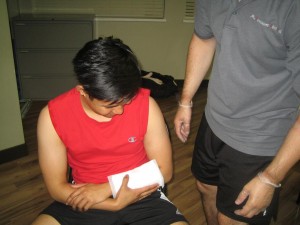After an individual undergoes surgery, he/she will surely end up with an incision or scar site to take care at home after discharge from the hospital. How the individual cares for the surgical cut can mean the difference between hygienic healing and ending up with an ugly surgical scar that can be aesthetically unpleasant to look at especially on exposed parts of the body.
A healing surgical wound that opens up again or infection started to develop will only slow down the healing process and puts the individual at risk for a surgical scar. Always make sure that the incision stays clean and properly sterilized while following the instructions given by the doctor for best healing of the surgical scar in the best way possible.
Follow the instructions given by the doctor
Always follow the instructions given by the doctor for proper care of the incision site after surgery. Depending on the location and the factors of the surgery, the instructions for scar care tends to vary including the application of creams or using oral antibiotics to help control the infection.

If the doctor provided written instructions, the individual should hang them in a spot where he/she will care for the surgical care so that he/she can review them often.
Regular cleansing
It is vital to clean the surgical scar on a daily basis. Always make sure that the area is not scrubbed or rubbed. When cleaning, work up a good lather using an antibacterial soap and pat the suds over the scar. Leave the suds for 15-20 seconds and rinse the soap off. After rinsing, pat dry using a towel.
Change the dressings
The dressings should be changed as often as the instructed by the doctor. When changing the bandages, carefully wash hands using an antibacterial soap to clean them before touching the scar. Always peel away the old dressing to ensure that the skin is not removed while peeling. In case skin tags along with the dressing, you have to moisten the bandage and try again. Replace with clean dressing and secure in place using a first aid tape.
Use ointment when needed
You can apply an ointment only when instructed by the doctor. Even though antibiotic ointments can also stop the infection, there are cases in which it can slow down the healing process. If ointment is needed, the doctor will prescribe a suitable one and explain how to use it.
Signs of infection
Once the signs and symptoms of infection are present, a doctor should be consulted. Take note that an infection can spread and slow down the healing process. The indication of infection includes pain, redness, swelling or yellowish discharge. It is also recommended to consult a doctor if the incision opens up. In such cases, the site might require stitches or staples to close for better healing and less risk for a surgical scar to develop.
